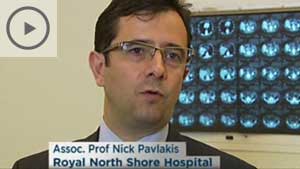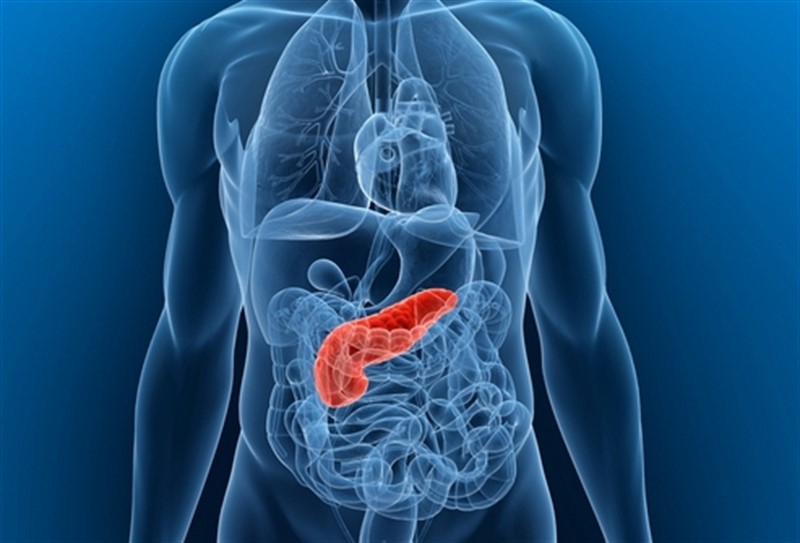STA Receives TGA Approval for ABRAXANE® in Combination with Gemcitabine for First-Line Treatment of Metastatic Pancreatic Cancer
Melbourne, Australia – March, 2014: Australian biopharmaceutical company Specialised Therapeutics Australia (STA) is pleased to announce that ABRAXANE® (nanoparticle albumin-bound paclitaxel) in combination with gemcitabine in now approved by the Therapeutic Goods Administration (TGA) for the first-line treatment of metastatic pancreatic cancer.
The TGA approved indication is:
ABRAXANE, in combination with gemcitabine, is indicated for the first-line treatment of patients with metastatic adenocarcinoma of the pancreas.1
TGA approval was based on the pivotal randomised phase III trial, MPACT (Metastatic Pancreatic Adenocarcinoma Clinical Trial), published in the New England Journal of Medicine (NEJM) in October 2013.2 The study reported that patients treated with ABRAXANE plus gemcitabine had a statistically significant improvement in overall survival (OS) compared to patients receiving the current standard of care, gemcitabine monotherapy (OS; median 8.5 months vs. 6.7 months; HR 0.72, P<0.001).2 An updated analysis of OS presented at a recent international cancer conference in January 2014 (ASCO GI) showed the survival benefit was further extended in the ABRAXANE plus gemcitabine arm, with a 2.1 month median OS improvement compared to gemcitabine alone (OS; median 8.7 months vs 6.6 months; HR=0.72; p<0.0001).3
MPACT is the first phase III trial in metastatic pancreatic cancer to report greater than 3-year survival rates, with 4% of patients in the ABRAXANE plus gemcitabine arm alive after three years, and 3% of patients alive at 42 months, compared to 0% in the gemcitabine alone arm at both time points.3
STA Chief Executive Officer Mr Carlo Montagner said TGA approval paves the way for Australian patients with metastatic pancreatic cancer to access this more effective treatment option.
He commented: “In Australia, pancreatic cancer is the fifth most common cause of death from cancer for both men and women, and very few treatment options exist for this group of patients. No new drugs have been approved by the TGA for this disease since 2006. We are extremely pleased to receive TGA approval in recognition that ABRAXANE is capable of prolonging survival for patients with metastatic pancreatic cancer, and look forward to a Pharmaceutical Benefits Scheme (PBS) listing for this difficult to treat cancer.”
ABRAXANE is now TGA approved for three indications; metastatic breast cancer, first-line Non-Small Cell Lung Cancer (NSCLC) and first-line metastatic pancreatic cancer.1
STA is currently seeking a PBS listing for ABRAXANE in first line metastatic pancreatic cancer.
About MPACT2
MPACT (Metastatic Pancreatic Adenocarcinoma Clinical Trial), was a Celgene-sponsored, open-label, randomised, international study of 861 patients with metastatic pancreatic cancer. Patients were randomised to receive either ABRAXANE plus gemcitabine (125 mg/m2 followed by 1000 mg/m2 gemcitabine for 3 weeks followed by a week of rest) or gemcitabine alone (1000 mg/m2 administered weekly for 7 weeks followed by a week of rest then weekly administration for 3 weeks followed by one week of rest).
The primary endpoint of the study was overall survival. Secondary endpoints were progression-free survival and overall response rate determined by independent radiological review. Other endpoints included the safety and tolerability of this combination in patients with metastatic pancreatic cancer.
The most common grade ≥3 treatment-related adverse events in MPACT for ABRAXANE plus gemcitabine vs. gemcitabine alone were neutropenia (38% vs. 27%), fatigue (17% vs. 7%), and peripheral neuropathy (17% vs. 1%) respectively. The median time to neuropathy improvement by one grade from grade ≥3 was 21 days in the ABRAXANE plus gemcitabine arm compared to 29 days in the gemcitabine alone arm. Neuropathy improved to grade 1 or lower in a median of 29 days for the ABRAXANE plus gemcitabine arm and was not reached for the gemcitabine alone arm. There was no difference in serious life threatening toxicity (4% in each arm).2
About Advanced Pancreatic Cancer4
Advanced pancreatic cancer is a difficult-to-treat cancer with the lowest survival rates among all cancer types. Across all patients with pancreatic cancer, relative 5-year survival is approximately 5% and is less than 2% for those with advanced disease. There are two main types of pancreatic cancer – adenocarcinomas, which accounts for approximately 90% of all pancreatic cancer, and neuroendocrine tumours. Pancreatic cancer is relatively uncommon with new cases accounting for only 2.1% of all newly diagnosed cancers. However, pancreatic cancer is the fifth most common cause of cancer death for men and women in the United States and Australia, and the ninth most commonly diagnosed cancer in Australia.4
About ABRAXANE®
Developed using the proprietary nabTM technology platform, ABRAXANE is a nanoparticle protein-bound chemotherapy agent. ABRAXANE combines paclitaxel with albumin, a naturally-occurring human protein, to deliver the drug and therefore eliminates the need for solvents in the administration process. Nanoparticle technology allows ABRAXANE to deliver a 49% higher dose compared to regular solvent-based paclitaxel without compromising safety and tolerability.1,5
ABRAXANE is approved for the treatment of metastatic breast cancer, NSCLC and metastatic pancreatic cancer.1 In Australia, ABRAXANE is currently listed on the PBS for the treatment of metastatic breast cancer and HER2 positive breast cancer in combination with trastuzumab. Abraxane is not PBS listed for the indications of NSCLC or metastatic pancreatic cancer.
For the first-line treatment of metastatic pancreatic cancer, the recommended dosing regimen for ABRAXANE is 125 mg/m2 administered as an intravenous infusion over 30 minutes on Days 1, 8 and 15 of each 28-day cycle. Gemcitabine 1000 mg/m2 is administered as an intravenous infusion beginning immediately after the completion of ABRAXANE administration on Days 1, 8 and 15 of each 28-day cycle.1
ABRAXANE is currently in various stages of investigation for the treatment of the following cancers: metastatic melanoma, adjuvant pancreatic cancer, bladder cancer and expanded applications for breast cancer.
BEFORE PRESCRIBING PLEASE CONSULT THE ABRAXANE PRODUCT INFORMATION AVAILABLE AT www.specialisedtherapeutics.com.au
ABRAXANE® Minimum Product Information
ABRAXANE: Nanoparticle albumin-bound paclitaxel 100 mg powder for injection (suspension)
Indications:
Metastatic carcinoma of the breast after failure of anthracycline therapy.
First-line treatment of non-small cell lung cancer (NSCLC) in combination with carboplatin, in patients who are not candidates for potentially curative surgery and/or radiation.
First-line treatment of patients with metastatic adenocarcinoma of the pancreas, in combination with gemcitabine.
Contraindications: Baseline neutrophil count < 1.5 x 109/L, hypersensitivity to ABRAXANE or albumin, pregnancy, lactation.
Precautions: Administer under the supervision of a physician experienced in the use of chemotherapeutic agents. ABRAXANE is not clinically interchangeable with other paclitaxel formulations. Dose dependent and dose limiting bone marrow suppression (frequent peripheral blood cell counts recommended for all patients). Peripheral neuropathy, sepsis, severe hypersensitivity, pneumonitis, patients with hepatic impairment, cardiotoxicity, affects fertility, pregnancy (category D), lactation, paediatric use. In elderly – more frequent myelosuppression, peripheral neuropathy, arthralgia, diarrhoea, decreased appetite, dehydration and epistaxis. Refer to full PI for more information.
Interactions: Inhibitors or inducers of either CYP2C8 or CYP3A4 (e.g. inhibitors: erythromycin, ketoconazole, fluoxetine, imidazole antifungals, gemfibrozil, cimetidine, ritonavir, saquinavir, indinavir, and nelfinavir; inducers: rifampicin, carbamazepine, phenytoin, efavirenz, nevirapine). CYP2C8 and CYP3A4 substrates, quinidine, PEG-35 castor oil, quercetin, clozapine, morin, and resveratrol. Refer to full PI for details.
Adverse Effects: Very common effects in ABRAXANE monotherapy: Neutropenia, anaemia, leukopenia, thrombocytopenia, lymphopenia, bone marrow suppression, peripheral neuropathy, neuropathy, hypoaesthesia, paraesthesia, myalgia, arthralgia, asthenia, nausea, vomiting, diarrhoea, constipation, stomatitis, anorexia, pyrexia, alopecia, rash, fatigue, mucositis. Additional very common effects in combination with carboplatin: Peripheral oedema, dyspnoea, decreased appetite. Additional very common effects in combination with gemcitabine: chills, abdominal pain, dysgeusia, headache, dizziness, dehydration, hypokalemia, cough, epistaxis, weight decreased, ALA increased, pain in extremity, insomnia, depression, anxiety. This is not a full list of adverse effects – refer to full PI for more information.
Dose:
Metastatic Breast Cancer: ABRAXANE 260 mg/m2 every 3 weeks.
NSCLC: ABRAXANE 100 mg/m2 on days 1, 8, and 15 of each 21-day cycle. Recommended carboplatin dose is AUC = 6 mg•min/mL on day 1 only of each 21-day cycle, beginning immediately after the end of ABRAXANE administration.
Metastatic Pancreatic Cancer: ABRAXANE 125 mg/m2 on Days 1, 8 and 15 of each 28-day cycle. Recommended gemcitabine dose is 1000 mg/m2 beginning immediately after the end of ABRAXANE administration on Days 1, 8 and 15 of each 28-day cycle.
Dose adjustments: Required for severe neutropenia, severe peripheral neuropathy and certain non-haematological toxicities (see full PI for details). Hepatic Impairment: Patients with severe hepatic impairment should not be treated with ABRAXANE. Consider dose reduction in patients with bilirubin >2 ULN. Refer to full PI for details.
Administration: Administered intravenously over 30 minutes. No premedication to prevent hypersensitivity reactions is required for ABRAXANE. Do not mix any other drugs with the ABRAXANE infusion.
Preparation for Intravenous Administration: Reconstitute with 20 mL of 0.9% Sodium Chloride. Inject appropriate amount of reconstituted ABRAXANE into an empty, sterile, polyvinyl chloride (PVC) or non-PVC type IV bag for IV infusion. Protect from light. For more details, refer to full PI.
Patients should consult their oncologist or the ABRAXANE Consumer Medicine Information available on www.specialisedtherapeutics.com.au
ABRAXANE® is a registered trademark of Celgene Corporation.
ABRAXANE® is distributed by STA under license from Celgene Corporation, in Australia and New Zealand.
About Specialised Therapeutics Australia
Specialised Therapeutics Australia Pty Ltd (STA) is a biopharmaceutical company dedicated to working with leading pharmaceutical companies worldwide to provide acute care therapies for high unmet medical needs to people living in Australia and New Zealand. The STA therapeutic portfolio and pipeline at present encompasses oncology, infectious diseases, and haematology. STA also has interests in the therapeutic areas of ophthalmology, respiratory, dermatology, endocrinology and central nervous system (CNS). Additional information can be found at www.specialisedtherapeutics.com.au
References
- ABRAXANE Product Information.
- Von Hoff DD et al. Increased Survival in Pancreatic Cancer with nab-Paclitaxel plus Gemcitabine. N Engl J Med 2013; 369(18):1691-703.
- Goldstein D et al. Oral Abstract # 178. Updated survival from a randomized phase III trial (MPACT) of nab-Paclitaxel plus gemcitabine versus gemcitabine alone for patients (pts) with metastatic adenocarcinoma of the pancreas. ASCO GI 2014.
- Cancer in Australia. An Overview 2012. Australian Institute of Health and Welfare (AIHW).
- Gradishar WJ et al. J Clinical Oncology 2005;23:7794-7803.



